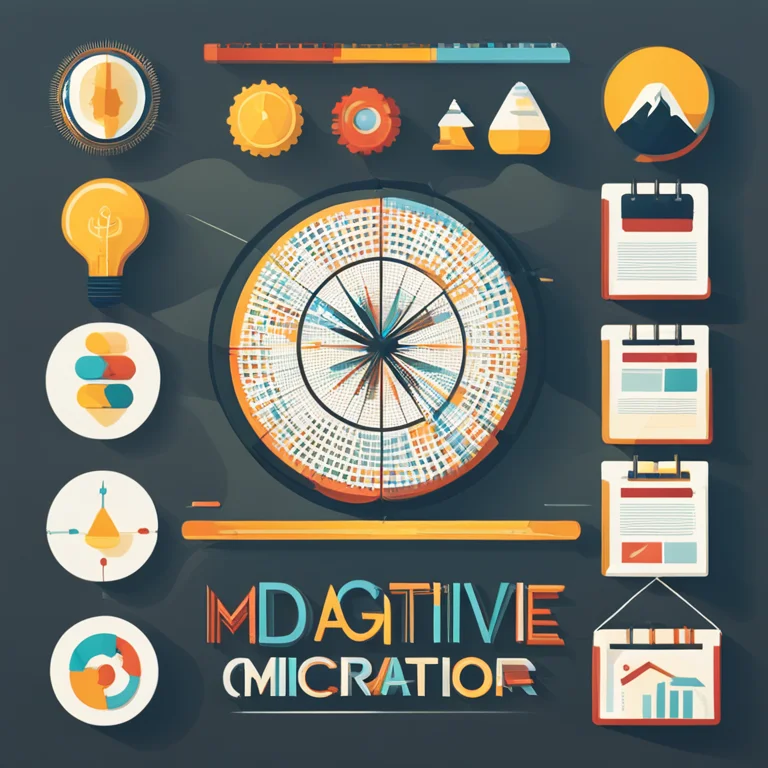
Mind Boost: Can Meditation Enhance Intelligence?
This article delves into whether meditation practices can contribute to increased intelligence, combining scientific insights and practical advice for mental enhancement.
article by Hina Kurosawa
The Connection Between Meditation and Intelligence
With the modern world's growing interest in self-improvement, the ancient practice of meditation has gained fresh popularity. Often associated with heightened awareness and reduced stress, a question that frequently arises is whether meditation can also make us smarter. Intelligence, a complex trait encompassing problem-solving abilities, creativity, emotional knowledge, and memory, is not just static but can be nurtured. Meditation is argued to influence these facets positively, suggesting a potential boost in overall cognitive function. As we advance into the year 2024, the intersection of neuroscience and meditation continues to provide compelling insights into the mind's malleability.

Neurological Benefits of Regular Meditation
Meditation appears to reshape brain structure, according to recent research, particularly in areas connected to learning and memory. Studies leveraging MRI scans demonstrate that regular meditators exhibit thicker cortical walls, a feature associated with better neuron health and cognitive preservation. Furthermore, regions like the hippocampus, pivotal for memory formation, and the prefrontal cortex, critical for decision-making, show enhanced activity and connectivity. Such neurological developments have the potential to translate into improved performance on tasks requiring intellectual rigor.

Emotional Intelligence and Mindfulness
Beyond IQ, emotional intelligence (EQ) is crucial for social interactions and personal growth. Meditation, especially mindfulness, encourages a deeper understanding and regulation of emotions. As one learns to observe their thought patterns without judgment during meditation, the skill of recognizing emotional responses in oneself and others is refined. This may lead to more effective communication and empathy, skills that are essential in both personal and professional realms as we navigate the complexities of 2024's social dynamics.

Concentration, Focus, and Cognitive Agility
The ability to focus and maintain attention is a foundational element of intelligence. Distraction has become an epidemic in our digital age, with constant notifications and multitasking hindering our cognitive abilities. Meditation trains the brain to concentrate on the present moment, potentially improving attention span and the capacity to switch between tasks efficiently. This cognitive agility facilitates learning and the application of intelligence in dynamic ways. As we embrace an ever-accelerating pace of life, such mental dexterity becomes increasingly valuable.

The Role of Meditation in Stress Reduction
Stress is a notorious inhibitor of cognitive functioning. When we are stressed, our bodies enter a 'fight or flight' mode, which can cloud judgment and reduce mental performance. One of the most renowned benefits of meditation is its ability to reduce stress levels, resulting in clearer thinking and better problem-solving skills. By lowering cortisol, the stress hormone, meditation can lift the fog of anxiety, allowing for higher-level reasoning and a smarter approach to life's challenges.
Practical Tips for Incorporating Meditation
To reap the intellectual benefits of meditation, consistency is key. For beginners in 2024, many apps and online courses provide guided sessions tailored to various needs. Joining a local meditation group can also offer support and deepen one's practice. Starting with just a few minutes a day and gradually building up can make the process manageable. Remember that the quality of the practice, not just the quantity, contributes to developing a smarter, more agile mind.
Published: 1/9/2024
Modified: 1/9/2024
More predictions
Come back here soon to learn more about yourself and your future


Mindful Rest: Integrating Meditation & Sleep for Well-being
Discover the synergy of meditation and sleep in enhancing mental, emotional, and physical health. This article delves into practices that combine these powerful restoration tools.


The Serenity Sojourn: Embrace a Meditation Retreat
Delve into the tranquility of a meditation retreat and rejuvenate your mind, body, and soul with practices that transcend time.


Retreat into Serenity: A Meditation Haven
Discover the transformative power of a meditation retreat and find tranquility for mind, body, and spirit in our comprehensive guide.